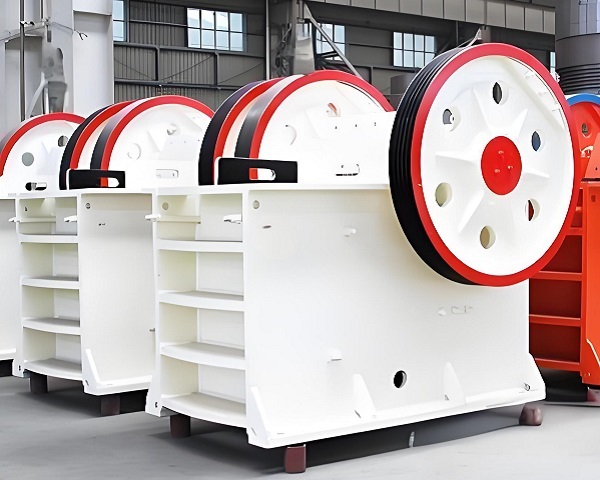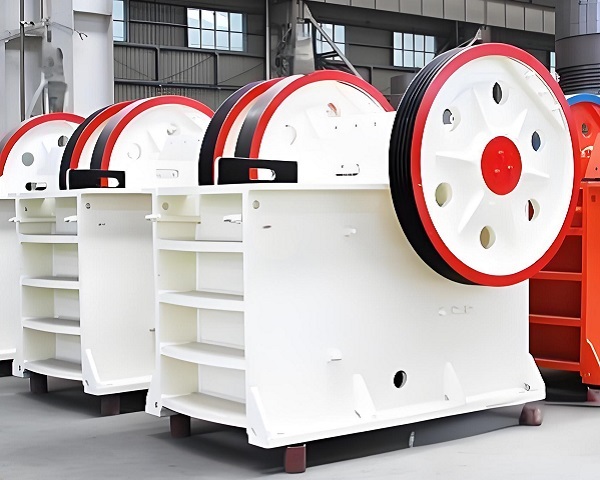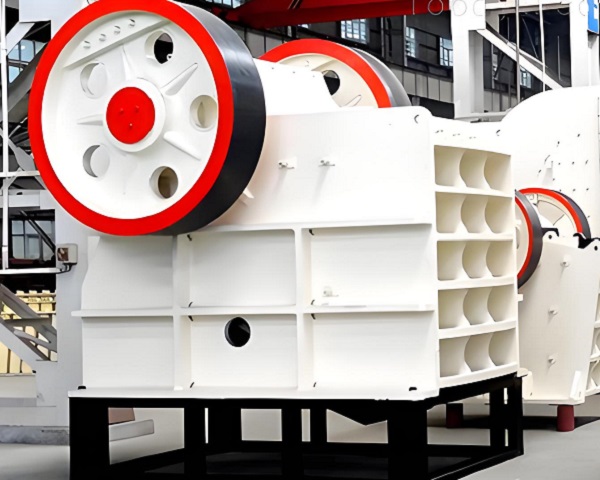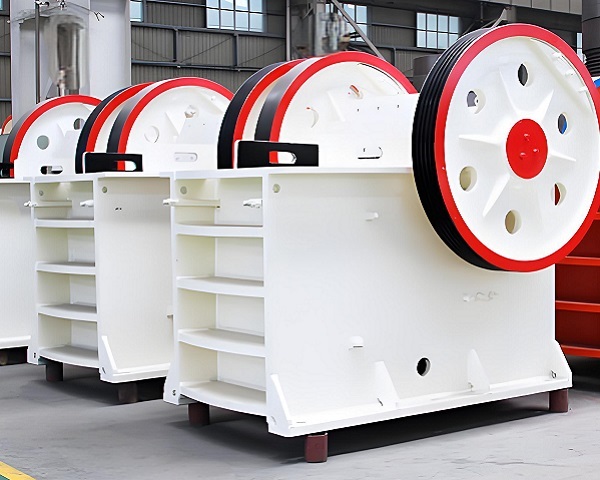As the core equipment in a crushing production line, the selection and purchase of a jaw crusher directly impacts production efficiency, crushing results, and subsequent operating costs. For businesses or individuals considering purchasing a jaw crusher, mastering a sound purchasing method is crucial. The following details the specific steps and precautions for purchasing a jaw crusher from multiple perspectives.

A. Clarify Your Needs
Before purchasing a jaw crusher, you must first clearly define your production needs. This forms the basis for subsequent model selection and procurement.
Crushing Material Characteristics: Different materials have varying requirements for jaw crushers. It's important to clearly define the type of material being crushed, such as ore, construction waste, or coal. You should also understand the material's hardness. Materials like granite and basalt are considered high-hardness, while limestone and shale are considered medium-to-low-hardness. Furthermore, the material's moisture content and particle size should be considered. Materials with excessive moisture content tend to adhere to the crushing chamber walls, affecting crushing efficiency, while materials with excessively large particle sizes may require pretreatment.
Production Scale Requirements: Determine your desired hourly or daily output based on your production plan. Large-scale enterprises should choose a jaw crusher with high processing capacity and a larger model, while smaller projects can opt for a smaller model to avoid idle equipment and wasteful resources.
Crushed Product Requirements: Define the particle size requirements for the crushed product, specifically the maximum particle size and particle size distribution of the finished product. Different applications require different finished product particle sizes. For example, construction sand requires high particle size uniformity, while road construction may require larger particle sizes.
B. Understanding Jaw Crushers
After clarifying your needs, you need to understand the basics of jaw crushers to better select a model.
Jaw Crusher Model Parameters: Jaw crusher models are typically indicated by the feed opening size and the adjustment range of the discharge opening, such as a PE-600×900 jaw crusher, where 600×900 represents the width and length of the feed opening. Different jaw crusher models vary in parameters such as processing capacity, motor power, and weight. You should select the appropriate model based on your specific needs.
Jaw Crusher Structural Features: A jaw crusher primarily consists of a frame, movable jaw, fixed jaw, eccentric shaft, bearings, and jaw plates. Understanding the functions and roles of each component will help you assess the performance and reliability of the equipment when selecting it. For example, a frame constructed of high-strength steel can improve the equipment's stability and durability, while high-quality jaw plates can extend its service life.
How a jaw crusher works: A jaw crusher uses the periodic oscillation of its movable jaw to squeeze, split, and bend the material entering the crushing chamber. Understanding its working principle can help us better understand the equipment's performance characteristics and potential problems that may arise during use.

C. Choosing the Right Purchasing Channel
Currently, the main channels for purchasing jaw crushers include direct purchase from the manufacturer, dealer purchase, and online purchase, each with its own advantages and disadvantages.
Direct Purchase from the Manufacturer: Purchasing a jaw crusher directly from the manufacturer offers more favorable prices and allows direct communication with the manufacturer to learn more about the equipment and customize your needs. In addition, the manufacturer typically provides more comprehensive after-sales service, such as installation and commissioning, and technical training. However, this method may require the user to transport the equipment, and for users living far away, visiting the manufacturer may be inconvenient.
Distributor Purchase: Distributors typically have extensive equipment resources and can offer a wide selection of jaw crusher brands and models. Distributors may also have a good local service network and be able to respond promptly to user needs. However, purchasing through a distributor may incur certain intermediary costs, leading to relatively higher prices.
Purchasing through online platforms: Online platforms offer numerous jaw crusher suppliers, making it easy for users to compare prices and learn more about equipment. However, online purchasing carries certain risks, making it difficult to intuitively judge the quality and performance of the equipment, and after-sales service may be relatively weak.
D. Supplier Inspecting

Regardless of the purchasing channel, it is important to thoroughly inspect the supplier to ensure you are purchasing a high-quality jaw crusher.
Company Qualifications: Review the supplier's business license, production license, quality management system certification, and other relevant documents to ensure they have legal production and operating qualifications and a comprehensive quality management system.
Production Capacity: If the manufacturer is a manufacturer, examine the scale of their production facility, the sophistication of their production equipment, and their production processes to determine their ability to produce high-quality jaw crushers. Review the manufacturer's production history and past case studies to assess their production experience.
Product Quality: Request that the supplier provide jaw crusher samples or conduct on-site inspections of their customers to understand the equipment's operating conditions, crushing performance, and failure rates. Also, check the brand and quality of the components used in the equipment, such as bearings and motors. High-quality components ensure reliable operation.
After-sales Service: Understand the supplier's after-sales service system, including warranty coverage, repair response time, and spare parts availability. Good after-sales service ensures timely repairs when equipment malfunctions, minimizing downtime and production losses.
E. Compare and Negotiate Prices
After reviewing multiple suppliers, compare equipment prices and negotiate with them.
Price Comparison: When comparing prices, don't just focus on the bare metal price of the equipment. Consider other costs, such as shipping, installation and commissioning, and training, to comprehensively assess the total cost of the equipment. Also, consider the price's compatibility with the equipment's quality and performance to avoid blindly pursuing the lowest price and purchasing inferior equipment.
Negotiation Skills: When negotiating with suppliers, clarify your needs and budget and present reasonable price requirements. You can explain other suppliers' quotes to the supplier to secure a more favorable price. Also, pay attention to contract terms, such as payment methods, delivery dates, and quality assurance, to ensure your rights are protected.
F. Contract Signing
After confirming the supplier and equipment price, a formal purchase contract must be signed to clarify the rights and obligations of both parties.
Contract Terms: The contract should detail the equipment model, specifications, quantity, price, payment method, delivery date, quality standards, warranty period, and after-sales service. For customized equipment, the specific parameters and requirements, as well as the acceptance criteria, must be clearly stated.
Liability for Breach of Contract: The contract should clearly define the liability of both parties for breach of contract, such as the method and amount of compensation for the supplier's failure to deliver on time or for equipment quality failures; as well as the buyer's liability for failure to pay on time.

G. Equipment Acceptance and After-Sales Service
Upon arrival, the equipment must undergo a rigorous inspection to ensure it meets the contract requirements.
Equipment Acceptance: Check the equipment's appearance and condition, ensure all parts are complete, and ensure the model and specifications are consistent with the contract. Conduct a trial run to observe the equipment's operating status, crushing performance, noise, vibration, and other conditions to ensure proper functioning.
After-Sales Service: Maintain close contact with the supplier during equipment use and promptly report any issues. Suppliers should provide after-sales services, such as repairs, parts replacement, and technical support, as agreed in the contract. Users should also perform routine maintenance and upkeep on the equipment to extend its lifespan.
Purchasing a jaw crusher requires comprehensive consideration of many factors, from clarifying needs, understanding the equipment, selecting a purchasing channel, to inspecting suppliers, comparing prices, signing contracts, and inspecting the equipment. Each step is crucial. Only with thorough preparation can you purchase a jaw crusher that meets your needs and is of reliable quality, ensuring smooth production.